Related Research Articles
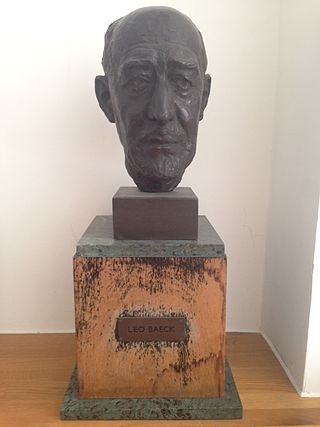
Leo Baeck was a 20th-century German rabbi, scholar, and theologian. He served as leader of Reform Judaism in his native country and internationally, and later represented all German Jews during the Nazi era. After the Second World War, he settled in London, in the United Kingdom, where he served as the chairman of the World Union for Progressive Judaism. In 1955, the Leo Baeck Institute for the study of the history and culture of German-speaking Jewry was established, and Baeck was its first international president. The Leo Baeck Medal has been awarded since 1978 to those who have helped preserve the spirit of German-speaking Jewry in culture, academia, politics, and philanthropy.

Peter Schäfer is a prolific German scholar of ancient religious studies, who has made contributions to the field of ancient Judaism and early Christianity through monographs, co-edited volumes, numerous articles, and his trademark synoptic editions. He was a Professor of Religion and the Ronald O. Perelman Professor of Judaic Studies at Princeton University from 1998 to 2013.
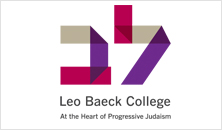
Leo Baeck College is a privately funded rabbinical seminary and centre for the training of teachers in Jewish education. Based now at the Sternberg Centre, East End Road, Finchley, in the London Borough of Barnet, it was founded by Werner van der Zyl in 1956 and is sponsored by The Movement for Reform Judaism, Liberal Judaism and the United Jewish Israel Appeal. It is named after the inspirational 20th-century German Liberal rabbi Leo Baeck.

Ernst Akiba/Akiva Simon was a German-Jewish educator and religious philosopher.

The Leo Baeck Institute, established in 1955, is an international research institute with centres in New York City, London, Jerusalem and Berlin, that are devoted to the study of the history and culture of German-speaking Jewry. The institute was founded in 1955 by a consortium of influential Jewish scholars including Hannah Arendt, Martin Buber and Gershom Scholem. The Leo Baeck Medal has been awarded since 1978 to those who have helped preserve the spirit of German-speaking Jewry in culture, academia, politics, and philanthropy.
Michael Zank is a German-born American author, specializing in Jewish theology and philosophy.
Julius Carlebach was a German-British rabbi and professor of sociology and history.

The Leo Baeck Institute New York (LBI) is a research institute in New York City dedicated to the study of German-Jewish history and culture, founded in 1955. It is one of three independent research centers founded by a group of German-speaking Jewish émigrés at a conference in Jerusalem in 1955. The other Leo Baeck institutes are Leo Baeck Institute Jerusalem and Leo Baeck Institute London, and the activities of all three are coordinated by the board of directors of the Leo Baeck Institute. It is also a founding partner of the Center for Jewish History, and maintains a research library and archive in New York City that contains a significant collection of source material relating to the history of German-speaking Jewry, from its origins to the Holocaust, and continuing to the present day. The Leo Baeck Medal has been awarded by the institute since 1978 to those who have helped preserve the spirit of German-speaking Jewry in culture, academia, politics, and philanthropy.
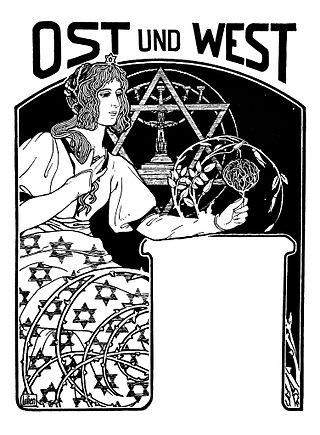
Ost und West was a German magazine meant to bridge cultural and political divides between Eastern and Western European Jews. The magazine, headquartered in Berlin, operated from 1901 to 1923. It was founded by Leo Winz and David Trietsch.

Johann Georg von Lori was a Bavarian high official, lawyer and historian. He was the driving force behind the foundation of the Bavarian Academy of Sciences and Humanities in 1759.
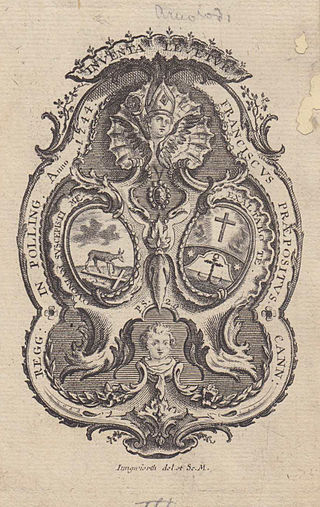
Franz Töpsl was an Augustinian Canon Regular, provost of Polling Abbey, historian and librarian.

Selma Stern-Täubler was one of the first women to become a professional historian in Germany, and the author of a seven-volume work The Prussian State and the Jews, her opus magnum.
Stefanie Schüler-Springorum is a German historian.

Mohr Siebeck Verlag is a long-established academic publisher focused on the humanities and social sciences and based in Tübingen, Germany. An independent publisher, it has remained in the same family over four generations.

Karl Otto Heinrich Liebmann was a German mathematician and geometer.
The Jüdische Humanitätsgesellschaft was a Zionist organization founded in Germany in 1893 by Max Bodenheimer, Heinrich Loewe, and Max Oppenheimer.The organisation was created as a response to аntisemitism. The name that was chosen for the organisation was neutral because most of the German Jews opposed Zionism. It became a group for many future leaders in German Zionism. Members included Arthur Menachem Hantke. Because the organisation had not set any clear goals except that of Jewish self-awareness, it attracted many young students.
Adolf Leschnitzer was a German-American writer-researcher, historian and teacher, specialising in Jewish and German studies.
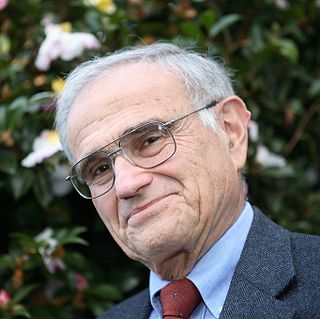
Michael Albert Meyer is a German-born American historian of modern Jewish history. He taught for over 50 years at the Hebrew Union College-Jewish Institute of Religion in Cincinnati, Ohio. He is currently the Adolph S. Ochs Emeritus Professor of Jewish History at that institution. He was one of the founders of the Association for Jewish Studies, and served as its president from 1978–80. He also served as International President of the Leo Baeck Institute from 1992–2013. He has published many books and articles, most notably on the history of German Jews, the origins and history of the Reform movement in Judaism, and Jewish people and faith confronting modernity. He is a three-time National Jewish Book Award winner.

Paul Maximilian Eppstein was a German sociologist, Zionist and elder in the Theresienstadt ghetto.
Werner Habicht was a German scholar of English literature and culture and an internationally acclaimed authority in the field of Shakespeare studies in particular. During his academic career, he held Chairs in English Studies at the Universities of Heidelberg (1966-70), Bonn (1970-78), and Würzburg (1978-95). Between 1976 and 1987 he was President of the West German branch of the German Shakespeare Society.
References
- ↑ Bayerische Akademie der Wissenschaften (1987). Jahrbuch der Bayerischen Akademie der Wissenschaften | Würdigunden der neuen Mitglieder | Michael Brenner (in German). C.H.Beck. p. 243.
- ↑ google search.
- ↑ Bundesinnenministerin Faeser setzt Kommission zur Aufarbeitung des Olympia-Attentats 1972 ein Federal Ministry of the Interior, press release of 21 April 2023.
- ↑ Miranda Murray (21 April 2023), Germany appoints commission to re-appraise 1972 Munich Olympics attack Reuters .
- ↑ Dachs, Gisela (18 December 1992). "Jüdisch und deutsch" . Zeit Online (in German).
- ↑ Prof. Dr. Michael Brenner, ordentliche Mitglieder der Bayerischen Akademie der Wissenschaften, retrieved 15 March 2013.
- ↑ Newsletter on the Leo Baeck Institute New York homepage.
- ↑ "Michael Brenner". baronawards.univie.ac.at. Retrieved 18 November 2022.